Guatemala is a study in contrasts.
The beauty of the land, seen in the mountains that are surrounded by trees and blue skies, makes the country look like a paradise upon first glance.
But then you go into the villages and see the day-to-day primitive life. The families live in huts that pass as houses. The people dress simply in what they can afford, which isn’t much.
Their power source isn’t electricity, it’s the sun. So when the call went out to help these people improve the quality of their lives, cooperatives responded. And Cherryland Electric Cooperative is one of several cooperatives in Michigan sending help.
Cherryland Line Superintendent Jim Carpenter went on a scouting trip in June along with other co-op supervisors to see what materials would be needed to install electric lines and work side-by-side with the people in the villages to get the work done.
Their goal is to bring electricity to 133 homes in the small villages of Soledad and Buena Vista. They will join two teams of employees from other Michigan electric cooperatives who will construct approximately 10 miles of line. They also will become part of a 53-year national co-op tradition to help bring power to the world’s developing countries.
“Similar to when electricity was brought to rural America, the lives of the Guatemalans will forever be changed through the efforts of our electric cooperatives,” said Cherryland General Manager Tony Anderson.
Carpenter’s scouting trip in June included scaling some rugged terrain to make it to the small villages.
“The locals who live in the mountains plant crops anywhere a seed will grow,” said Carpenter. “The mountain soil seems to be a type of sandstone, but the crops seem to grow well. It’s a good thing because that is their main food source.”
Their main power source will be electricity after the cooperative group completes its work later this year.
In November, Cherryland lineman Tom Ulatowski will be among a group of Michigan cooperative workers heading to Guatemala to spend two weeks constructing power lines and working to improve life for these people.
“The villagers are anxious to get electricity – one let us know where the pole should go for his home and another man ran down a hill and took down three trees with a chainsaw in no time, so we could get electricity right to his house,” said Carpenter.
Carpenter and his scouting group spent several days in Guatemala. The small village they were in started its day early.
“Daylight is signaled by dogs barking and roosters crowing about 5 a.m.,” he said. “It’s especially beautiful in the morning, when you watch the sun come up over the mountains. We enjoyed hearing the laughter of the villagers as got up and about. But because of their culture, we saw very little of the women and children. They stayed at a distance. The men were friendly and hard working. We know they are going to appreciate how their lives will change when they get electricity.”


Leave A Comment